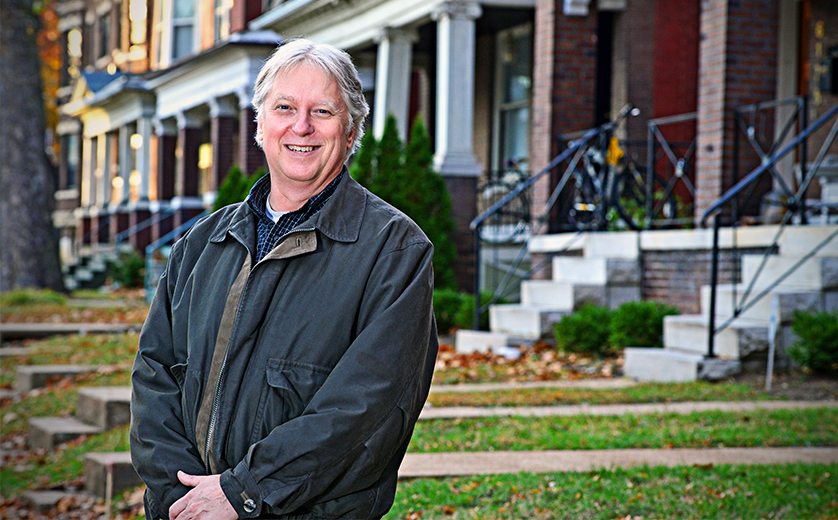Chance and luck play a far bigger role in our lives than any of us know, argues Mark Rank in his new book, “The Random Factor: How Chance and Luck Profoundly Shape Our Lives and the World around Us.”
Rank, the Herbert S. Hadley Professor of Social Welfare at Washington University in St. Louis, is an expert on poverty and inequality, but in this book he tackles the outsized role that randomness plays in our lives and in the world around us.

Much of your research has focused on studying poverty. What led you to explore the idea of luck and chance in our lives?
One important finding from my prior research is that at some point in their lives, most Americans will experience poverty. A key reason for this is that over time, randomness and bad luck can strike, such as being afflicted by an illness or having one’s job eliminated, which often throws people into poverty. In addition, many of the individuals I interviewed in an earlier book on the American dream mentioned how luck and chance had a profound influence on how their lives turned out. The prevalence of these events led me to thinking and writing about the vital role that chance plays in affecting the course of our lives and the world around us.
American resilience is often thought of as ‘pulling oneself up by the bootstraps.’ How do chance and hard work interplay?
America has long been steeped in the beliefs of rugged individualism and meritocracy. That through hard work and skills, we control our destiny and ultimately get what we deserve in life. The fact that there is considerable randomness in the world provides an important caveat to this perspective. It turns out that life is not just one or the other, but rather an interaction between individual agency on the one hand, and chance and randomness on the other. The way in which these two interact is one of the really interesting discussions in the book.
Can you give one example from the book of how chance or luck changed a major historical event?
Although there are many examples, one of the more dramatic discussed in the book was that World War III was probably prevented because a Russian sailor accidentally got his foot stuck on a submarine conning tower ladder.
On Oct. 27, 1962, during the height of the Cuban missile crisis, a Soviet commander thinking his submarine was under attack by U.S. warships, gave the order to dive and prepare the nuclear-tipped torpedo for firing. As the captain tried to descend from the conning tower into the hull of the sub and begin his dive, he was momentarily blocked by a signaling officer who had accidentally gotten his foot stuck on the conning tower ladder.
During this split-second delay, the second in command realized that they were not under attack, but rather the Americans were signaling. WWIII was very likely averted as a result of this brief delay in time caused by a sailor who happened to be stuck in the right place at the right time, along with a second in command who, given a few extra seconds, perceptively realized that the boat was not under attack.
As President John F. Kennedy’s Secretary of State Dean Acheson put it, nuclear war was averted by “just plain dumb luck.”

How can we use luck and chance to guide our lives and our public policies?
At the end of the book, I pose the question: What can we learn from the fact that we live in a world of randomness? In terms of policy, the concepts of social insurance and a strong social safety net are critical. Given that bad breaks and bad luck can strike at any time, having protections in place in terms of insurance and safety net programs are essential. With regard to personal lessons, some of them include a greater sense of empathy and humility, recognizing that the world is not always fair, understanding that randomness and chance give life a dynamic quality, and taking advantage of chance opportunities when they come along. And one final piece of advice: Don’t forget to count your lucky stars!
